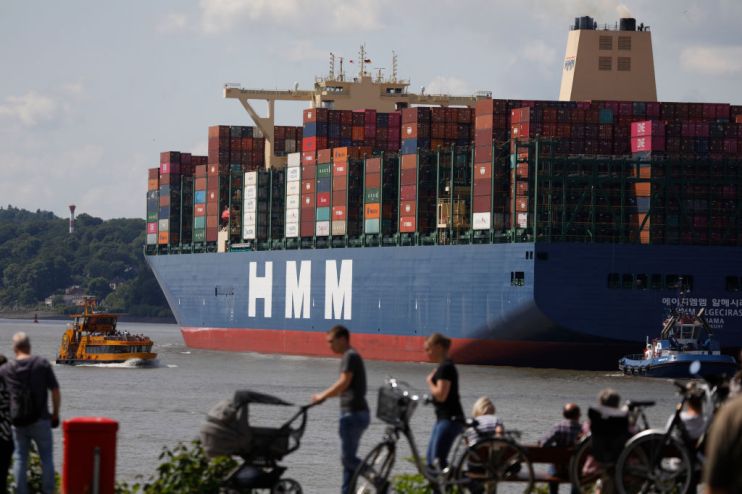They’ve kept our shelves stocked, now it’s time to stand up for our seafarers

The Covid-19 pandemic has been a desperately worrying time for many people all over the country, in virtually every sector.
Thousands of lives have been lost and the global economy has been set back by many years.
But there is another pandemic taking place behind the scenes — a hidden pandemic that may cause myriad unintended but disastrous consequences. And that is the plight of our seafarers around the world.
This week is Seafarers Awareness week, and it is important we mark this moment, as without seafarers and their skills we would be in a vastly different situation to where we are now — facing empty supermarket shelves and shortages of essential goods.
And yet, still many of them are still stuck onboard due to the lockdown and unable to be with their loved ones.
About 80 per cent of world goods are carried by ships. For Britain, around 95 per cent of our imports and exports in goods are moved by sea, including 25 per cent of the UK’s energy supply and 48 per cent of the country’s food supplies.
Nor is seafaring just about the ships themselves. There is an entire industry of professional services around maritime trade.
The City of London is a global leader in this area, with its unparalleled expertise in law, arbitration, shipbroking, financial services and consultancy. Indeed, the largest share of worldwide marine insurance premiums and shipbroking transactions occur in the UK, comprising 35 per cent and 26 per cent of the global market respectively, and these maritime services are embedded within the City’s wider financial sector, where London also continues to be a premier hub.
Maritime is quite simply the facilitator of free trade and our market economy, the tool that powers the engine of prosperity.
Yet over 200,000 seafarers are currently stuck at sea, due to the failure of the global diplomatic community to make an agreement on crew changes in light of the travel restrictions imposed as a result of Covid-19.
Since March, many countries have refused to allow crew changes at ports or shore leave, forcing mariner contracts to be extended. Some seafarers have been on board their vessels for over 15 months. And while some are being paid for this extra time, they are doing their jobs without the breaks they’re entitled to, often working 12 hours a day, seven days a week, putting their physical and mental health at risk.
Even in a landlocked constituency such as my own of Wealden, one local resident wrote in and told me that ships are now sailing the seas in “unseaworthy” conditions due to the “extreme mental and physical stress” of seafarers. He fears that these grave health and safety concerns are only going to become worse.
The situation is already dire. At Tilbury docks, 47 mainly Indian seafarers from the passenger vessel Astoria are on hunger strike, after weeks of pleas to their employer for back pay and repatriation produced no results. Tragically, a number of suicides have been reported around the world, and suicide attempts onboard ships stranded offshore or in port are now the foremost cause of deaths among seafarers.
These are key workers. They are what keeps freight travelling around the world, and some of them haven’t had a day’s break in months. We can only begin to imagine the horror of their plight, or how it must feel when many governments around the world simply turn a blind eye to their despair and exhaustion.
These men and women don’t go home every night to help with the homework and put the kids to bed — they’re busy delivering all of the goods that we depend on for our survival, most notably our food, medicines and fuel. The “out of sight, out of mind” attitude that most world leaders seem to have adopted will become slightly more difficult to maintain when our supply chains that bring food and medicine to our supermarket shelves begin to shut down.
The International Maritime Organisation (IMO) and the International Chamber of Shipping have done a tremendous job putting forward a 12-step plan for countries to implement safe crew changes. But it has become increasingly apparent over recent weeks that there is a tragic lack of leadership and coordination on a global scale.
The UK is the world’s leading maritime nation and we are also home to the IMO, which gives us a unique responsibility in leading on this crisis. Last week, I asked the Prime Minister in the House of Commons if he would agree to meet with the Chambers of Shipping to marshal the global community to help get our seafarers home and ensure that free trade continues to flow. Thankfully, he agreed to do just that.
Progress can be made. Britain should grasp this opportunity to stand up for seafarers and save global supply chains from crashing to a disastrous halt.
Main image credit: Getty